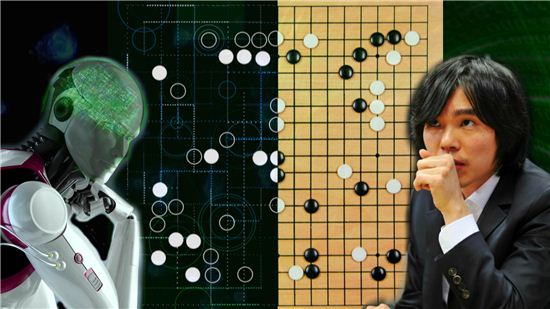Embracing Change and Challenges in Assigned Tasks!
Embracing Change and Challenges in Assigned Tasks!
March 2016 – Working as a Researcher at a Shipyard]
Perhaps due to my experience working in a shipyard, where the shipbuilding industry is traditionally conservative and ICT adoption is challenging, I had developed a skeptical perspective toward AI.
At that time, AI felt like nothing more than a buzzword—a term heavily used in marketing materials by global solution providers, rather than a truly transformative technology. (A highly personal viewpoint, of course.)
Despite the overwhelming media coverage at the time, AI was nothing more than a buzzword in annual reports, something I routinely wrote year after year.
[November 2016 – Company’s Stock Trading Suspension]
At the time, the sense of crisis in the shipbuilding industry was undeniable. It wasn’t just my colleagues—many professionals across the sector were seriously considering, and even executing, career transitions in response to the uncertainty.
However, I never considered leaving. In fact, I believed that staying rather than moving on could be an opportunity.
[Negative Perception of Technology Adoption]
This mindset was partly influenced by the nature of the manufacturing industry, where technological adoption is often slow and conservative.
Particularly in shipbuilding, there was significant hesitation and resistance toward integrating ICT technologies. Even the decision-making processes within the industry reflected this cautious approach.
However, I believed that the crisis in shipbuilding would inevitably push the industry toward change.
- Government support policies would likely emerge to sustain the sector.
- Decision-makers would be forced to consider innovation to stay competitive.
Looking back now, it was a life-changing gamble—one that could have gone either way.
[A Prediction That Paid Off]
Leveraging this shifting landscape, I focused on IoT technology, which was the leading trend across industries at the time.
By developing an S-IoT infrastructure specialized for the shipbuilding environment, I aimed to enhance the high-value potential of smart ships.
This effort led to:
- May 2014: Successfully signing an agreement with a leading Korean telecom company (related news article).
- May 2018: Establishing connections with key figures from Korea’s leading cloud provider and a global CPU company, further solidifying the initiative (related news article).
This experience made me realize that I could no longer remain a passive observer—a mere buyer (client) benefiting from AI-driven changes like a bystander riding the wave of innovation.
Instead, I needed to position myself as a supplier (or perhaps even a super-authority)—someone who actively drives market change rather than just reacting to it.
This marked a turning point in my awareness and sense of urgency, pushing me to prepare for the inevitable transformation AI would bring.
How Should Professionals Prepare for and Utilize AI?
Today, Product Owners (POs), ICT planners, UX/UI designers, and developers—regardless of their specific roles—must actively engage with AI, integrating it into their work and preparing for the future.
But how should professionals approach AI?
- What knowledge and skills should they acquire first?
- What kind of mindset and considerations are necessary to effectively adapt to AI-driven changes?
Despite having a master's degree in Computer Science and Mobile Communication Engineering, I personally experienced the limitations of self-studying AI.
Before joining a shipyard as a full-time engineer, I spent two years in a well-known professional training institution, mastering various programming languages (C, C++, C#) and specialized courses in Win32 API, MFC, and Embedded Systems.
Additionally, with four years of experience as a software developer, I was already in a relatively advantageous position to transition into AI.
Yet, even with this background, I struggled to keep up with AI advancements, realizing that self-study alone was not enough.
Nowadays, it's easy to find countless AI learning resources through YouTube, Google searches, Naver, GitHub, and even paid courses.
But back then, for some reason, none of those materials seemed as accessible or noticeable… 🤷♂️
[March 2019 – Establishment of Government-Supported AI Graduate Schools in Korea]
"Unshaken by the World's Distractions" – A Challenge Beyond 40
Despite being over 40—the so-called "불혹(不惑)", an age where one is said to be unwavering in judgment—I found myself drawn to the rapid changes of the AI era.
And so, I decided to pursue a Ph.D. in AI at one of the government-supported AI graduate schools established in 2019.
- Have you actually trained any models or conducted AI experiments?
- Are you currently employed? (Would you be willing to quit your job?)
(For those curious about the detailed reasons behind my rejection, leave a comment with your contact information, and I'd be happy to help—of course, under the condition that you're also committed to putting in the effort!)







Comments
Post a Comment